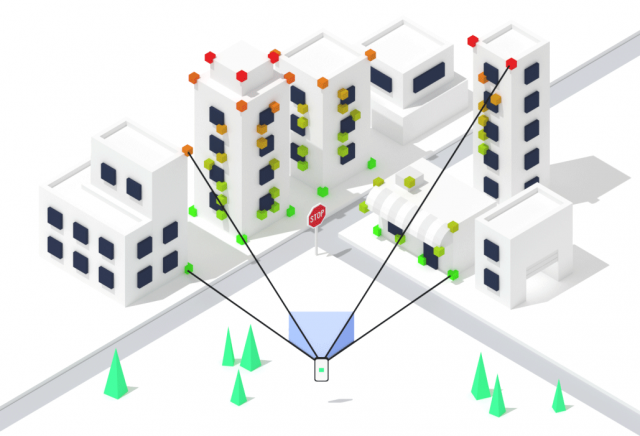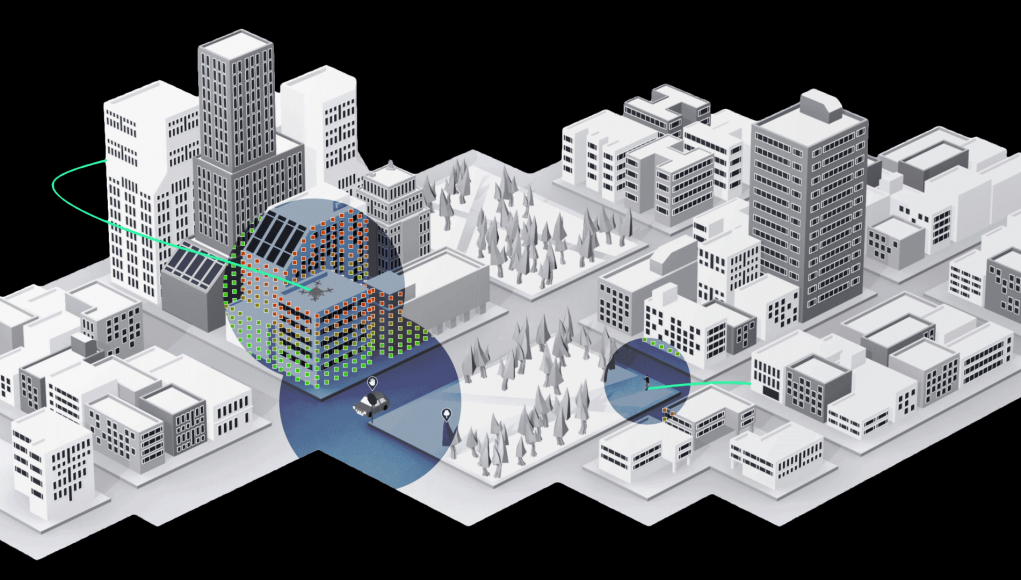Scape Technologies announced last week that it has raised an $8 million seed investment for a visual positioning system that it says can provide centimeter-accurate location data at city-scale. Such a system could be a key component in enabling a shared, persistent AR metaverse simultaneously accessible by all users.
Compelling augmented reality has been demonstrated on smartphones and headset in the last few years, capable of convincingly placing digital objects and information into our view of the real world. But a grander vision of augmented reality assumes an AR ‘layer’ over the entire real world, allowing multiple users to seamlessly see and experience AR content that’s relevant
While various inside-out tracking solutions are capable of locating a device with the sub-millimeter accuracy needed for rich head-worn AR—and even capable of mapping the local geometry so that AR content can realistically interact with it—the challenge of putting everyone on the same ‘map’, so to speak, is quite daunting. That’s because AR devices typically understand their local area but don’t have any context for how that area connects to the rest of the world. Even though GPS can offer some location context, its ~4 meter accuracy (which can be even worse with obstructions like trees and buildings) leaves much to be desired.
Scape Technologies believes its visual positioning system (VPS) can effectively bridge the gap between the coarse positional data of GPS and the millimeter-accurate local area tracking of inside-out tracking systems, offering a foundation for accurately locating devices in relation to one another at city-scale.
To that end, the company announced it has raised an $8 million seed investment to build out its visual positioning system, and an underlying framework that will enable devices to have an “understanding how the world is shaped, recognising objects within the environment, and communicating with nearby devices.” Mosaic Ventures, LocalGlobe, Fly VC, and Entrepreneur First, participated in Scape’s seed investment.

Scape says its VPS allows for the creation of 3D HD environment maps “at an infinitely large scale.” The company says it localization technique—which builds and references those maps in the cloud—requires only a basic camera to work, meaning that camera-equipped devices can be made are compatible without novel sensors. Speaking to Road to VR, Scape co-founder Edward Miller says that the company’s VPS takes around three to localize a device to within millimeters. Once a device is localized within its environment, it can leverage location context to place AR content into the world at distances far beyond what a device’s local tracking system is capable of understanding.
Alongside the investment announcement, the company says they’ve enabled a pilot version of the Scape VPS in London (where the company is headquartered), and will use the capital to expand the capabilities of the system and roll it out to more cities later this year, with a beta SDK planned for Q1.
Scape says its first priority is VPS, but over the next five years it will be building out the system offer “ubiquitous spatial intelligence,” giving devices deeper context about the macro environment around them, and fostering communication between devices to interact in a shared context—moving ever closer to the AR metaverse.
The company also believes their work will be useful to autonomous vehicles, robotics, and other industries where accurate global location context is critical.







